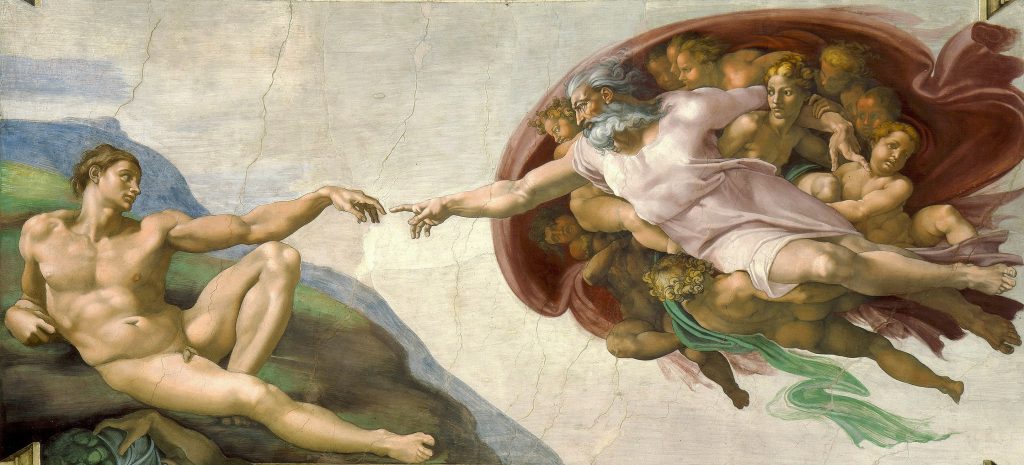The Catholic novelist Walker Percy once said: “Everyone has an anthropology. There is no not having one. If a man says he does not, all he is saying is that his anthropology is implicitly a set of assumptions he has not thought to call into question.”
By anthropology, he meant a set of beliefs about what it means to be a human being — about how we are made, what we are here for, and what brings meaning and happiness to our lives.
And Percy is right. Many of the deepest issues in our society and culture are issues of anthropology, even if we don’t talk about it that way.
Our Catholic social teaching is rooted in a beautiful and realistic anthropology, rooted in the teachings of ancient Judaism, developed by early Christian leaders, and handed down through the centuries.
We believe that every human being, from the time he or she is conceived in the womb, is created as the “imago Dei,” the image of God, with a sanctity and dignity that can never be denied.
We believe we are made creatures of body and soul, either male or female, and are created not in isolation but in relationships — with the world around us, and with other people.
We are made to live in families and communities founded in the most basic human relationship, that of man and woman in marriage. These natural relationships become the basis of social rights and also moral duties of mutual care for others and for the world around us.
At the heart of the Catholic vision is a deep truth: We are loved by God. St. Paul taught that before the foundation of the world, everyone is chosen and beloved by God and destined for holiness in Jesus Christ.
And that is still amazing for me to think about. The God who created the sun and the moon, the stars and all the planets — this God was thinking about us, he wanted you and me to be born. Before all creation, God knew our names and he had a plan for our lives.
In our Christian tradition, our lives have a beautiful teleology, a beautiful purpose and direction.
We are made to be redeemed, transformed, through the love of Jesus Christ, into the fullness of the divine image, to become “partakers of the divine nature,” as St. Peter said.
We are made for holiness, but we are also sinners.
We know this from personal experience, from our own failings and weakness, and we know from reading the news, that sin is real.
We are made with reason and freedom, made to seek God and what is good. We are called to seek to know him and to love him and to serve him. But we are also free to reject God, to turn away from him and to do evil. This is sin.
Sin is disordered love, choosing to love the wrong things and to form unhealthy attachments rooted in our selfishness.
But sin does not get the last word in our world or in our lives. God does not abandon the human race to sin.
Jesus Christ enters human history as the Son of God, the perfect “image of the invisible God” and the “new man.” He delivers us from sin and restores our human capacity for God and our ability to carry out God’s intentions for our lives.
As we prepare to celebrate our nation’s Independence Day, it is good to remember that this country was founded on a vision informed by the great tradition of Judeo-Christian anthropology.
Our nation’s founders shared the conviction that all men and women are created equal, endowed with God-given dignity, rights, and responsibilities.
The founders believed that the only reason for law and government is to serve the human person and to protect and promote the rights to life, liberty, and the pursuit of happiness. They believed that our human laws must reflect and conform to a higher law — what they called “the laws of nature and of nature’s God.”
As Catholics, the best service we can offer to our society is to live our faith in Jesus Christ with confidence and joy, serving God with all our hearts, and serving our families and our neighbors.
In this time when so many people are confused about the true meaning of life, let us try to bear witness in a special way to the beautiful anthropology that has been entrusted to us, helping our neighbors to see that they are treasured by God, made in his image, and born for greater things.
Pray for me, and I will pray for you. And let us pray for America.
And may Immaculate Mary, the patroness of America, give us courage and wisdom to proclaim the beauty of God’s plan of love for creation, for the human person, and for the human family.

